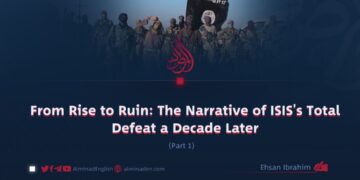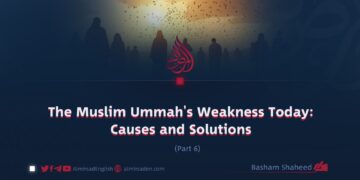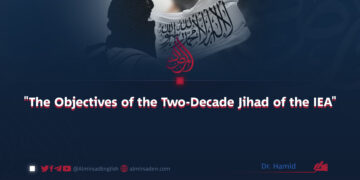Part 11
Author: Harith Ubaidah
7. Seeking Only the Pleasure of Allah in Conquests
The conquests led by Osman bin Ertuğrul, the founder of the Ottoman Caliphate, were not motivated by economic, military, or any other worldly ambitions. Rather, they were rooted in a sincere desire to propagate the religion of Islam and to exalt the Divine Word. As the renowned historian Ahmad Rafiq notes in his encyclopedia Al-Tarikh al-‘Aam al-Kabir (The General History):
“Osman was a deeply religious man who recognized the propagation of Islam as a sacred obligation. He possessed a broad and far-sighted political vision. His empire was not founded upon the pursuit of power, but upon a genuine love for spreading Islam.”
Echoing this sentiment, an Egyptian scholar writes:
“Osman bin Ertuğrul firmly believed that the sole purpose of his life was to strive in the path of Allah for the elevation of His Word. He devoted his entire physical and intellectual strength to this noble cause.”
These noble characteristics—faith, preparation for the Hereafter, love for the believers, disdain for disbelievers and sinners, devotion to jihad in the cause of Allah, and an unwavering commitment to the call of truth—defined Osman’s persona. As a result, in the regions he entered during his conquests in Asia Minor (Anatolia), he would offer local rulers three choices: accept Islam, pay the jizyah (tribute), or prepare for war.
Consequently, many embraced Islam, while others submitted to paying the tribute. Those who refused both were met with military resistance. Through this firm and principled approach, Osman successfully repelled the Byzantines and brought vast territories under his control.
Osman’s unwavering faith in Allah and his conscious awareness of the Hereafter imbued his character with dignity, composure, and spiritual charisma. His strength was tempered by justice, his authority by compassion, and his wealth by humility. He thus became deserving of divine support, and Allah granted him the means to achieve victory and dominion.
This success was a manifestation of Allah’s special favor upon His servant. Through wise leadership, powerful armies, and the awe and respect he commanded, Osman was granted authority across Asia Minor. Allah opened the doors of divine success for him, enabling the fulfillment of his lofty objectives.
Motivated by love for the Islamic call, Osman accomplished remarkable feats. With his sword, he secured significant military victories, and with his faith and righteous conduct, he won the hearts of many. Every nation he overcame was first invited to Islam. In every city and region under his rule, he actively worked to establish Islamic practices and promote justice and fairness. His love for the believers was deep and sincere, just as his disapproval of disbelievers and sinners was equally strong.
The Legal and Spiritual Foundations of the Ottoman State
The life of Sultan Osman was wholly devoted to jihad and religion. Islamic scholars were closely associated with his court, and his state was characterized by the implementation of Sharia law and a strong sense of order and discipline. His well-known will to his son, preserved in historical records, offers profound insight into the foundational principles of the Ottoman Empire—principles rooted in Islamic culture, law, and governance.
While on his deathbed, Osman advised his son:
“O my son! Do not engage in anything that Allah has not commanded. And if you encounter difficulties, seek guidance from the scholars and take counsel from them.
O my son! Honor the obedient among your people. Reward the soldiers and armies generously. Do not allow the state and sultanate to fall into the snares of Satan. Distance yourself from those who act in defiance of Sharia. Know that our ultimate objective is the pleasure of Allah, and that we aim to spread the light of religion in the world through jihad. Speak only that which pleases Allah.
My son, we are not a people who wage war to destroy lands or to enslave others. Our life and our death are both for Islam. This is your sacred inheritance.”



















































